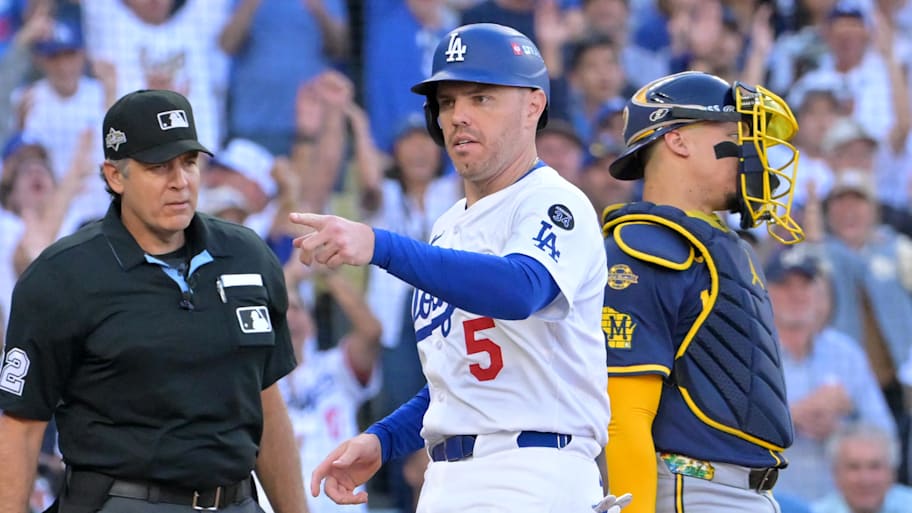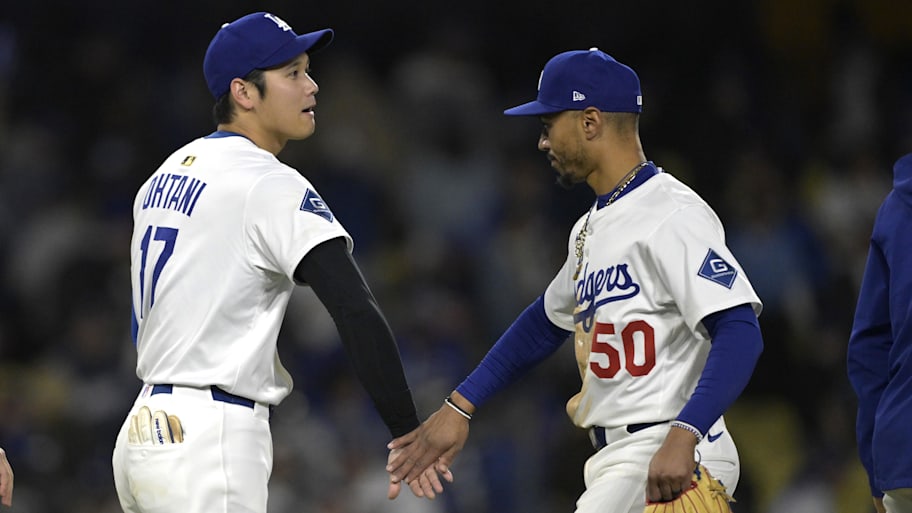TORONTO — Remember, Shohei Ohtani wanted to remain an Angel. Freddie Freeman all but begged to stay in Atlanta. Mookie Betts thought he would spend his entire career in Boston.
Max Muncy was released by the A’s. Tommy Edman was traded while on the injured list. Blake Snell was available to anyone on the open market—twice.
And it’s the Dodgers who are ruining baseball?
Sure, the money helps. The team that is headed to its second straight World Series, and fifth in the last nine years, with a chance to win three in that span, boasts, at $329 million, the highest payroll in the sport. After winning the World Series last season, they added $450 million worth of new players. Their local TV deal pays them $334 million a year, and this year they launched a paid fan club in Japan, with membership tiers ranging up to $500 per person.
But the No. 2 Mets ($323 million) didn’t make the playoffs. The No. 3 Yankees ($288 million) were bounced in the American League Division Series. And 48% of that TV money and 97% of that fan club money goes into revenue sharing, so everyone else is benefiting from it, too.
Meanwhile, the Dodgers have given out only three of the top 30 most lucrative deals, and so far all three look worth it: $700 million over 10 years for Ohtani (and that is an unusual case, because 97% of the money is deferred, so the contract functions as a credit card), $365 million over 12 years for Betts and $325 million over 10 years for Yoshinobu Yamamoto. Ohtani is the biggest star in sports. Betts is a three-time World Series champion, twice for the Dodgers, an eight-time All-Star and a finalist for this year’s National League Gold Glove at shortstop—a position he never played professionally before last season. Yamamoto is their ace and just threw a shutout in the National League Championship Series.
Mostly the Dodgers excel at evaluating players, and then they excel at developing them. And then, once they’ve done all that, they excel at keeping them.
Angels owner Arte Moreno, incredibly, reportedly balked at the deal structure Ohtani offered. Atlanta GM Alex Anthopoulos didn’t want to give Freeman the sixth year he sought. Red Sox owner John Henry—estimated net worth: $5.7 billion—wasn’t interested in coughing up the $350 million or so it would take to lock up the franchise’s best homegrown young player since Ted Williams. Those were all mistakes of evaluation.

Muncy had a good eye in Oakland but no power and no defensive home. The Dodgers adjusted his swing and played him everywhere. Now he’s perhaps their fourth most important hitter. Anthony Banda had a 5.69 ERA in parts of seven seasons all across the league. The Dodgers fixed his slider and told him to ditch his changeup. Now he’s a key left-handed fireman. Roki Sasaki came to L.A. in part because he had lost fastball velocity in Japan and wasn’t sure why. After a dreadful start to the season, the Dodgers told him to flex his back leg. Now he throws 100 mph again and gets nearly every crucial late-game out. That’s development.
And as for keeping players, they’re turning them away. President of baseball operations Andrew Friedman says he gets so many calls every winter that he could fill more than one roster—and that number only increases as the team continues its success.
“In 2015, our goal was to create a destination,” he says. “Somewhere our players don’t want to leave and other players are looking longingly that they want to be. It’s fragile, and it’s something that you have to continue to get better at every year, but that is the thing I’m most proud of—the inroads we’ve made on that front.”
Right fielder Teoscar Hernández, who signed a one-year prove-it deal with the Dodgers before 2024, all but begged to come back. Yamamoto essentially told other teams to stop offering him more money; he wanted to be in L.A. Relievers Tanner Scott and Kirby Yates took less money for a better shot at a ring. Across the league, players perk up when they hear the Dodgers are asking about them; they know they’re about to get a lot better, and, as outfielder Alex Call put it shortly after he was dealt from the Nationals at the deadline: “I’m going to the World Series!”
The Phillies’ Bryce Harper had it right. “Only losers complain about what they’re doing,” he said this spring.
And that’s because they’re doing it the proper way. Betts turned himself into a Gold Glove–caliber shortstop by sheer force of will—and thousands of ground balls. Freeman, a 36-year-old father of three who has made almost $300 million, plays every day and scolds anyone who doesn’t. Clayton Kershaw treats February bullpens like World Series games.
“You can come early at Dodger Stadium or when we’re on the road, and watch our star players out here early, taking ground balls out in the field, doing everything to try to help them gain some edge for that night,” says Friedman. “And you can look across the field, and the team we’re playing—their players are not out.”
They’re not ruining baseball. This is what baseball is supposed to look like.
More World Series on Sports Illustrated
This article was originally published on www.si.com as The Dodgers Aren’t Ruining Baseball—They’re Just Doing Everything Right.
